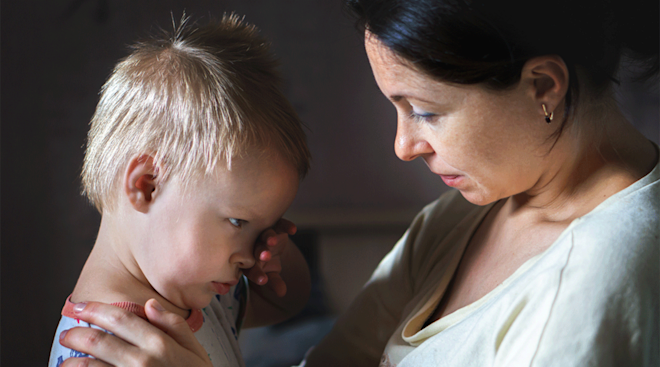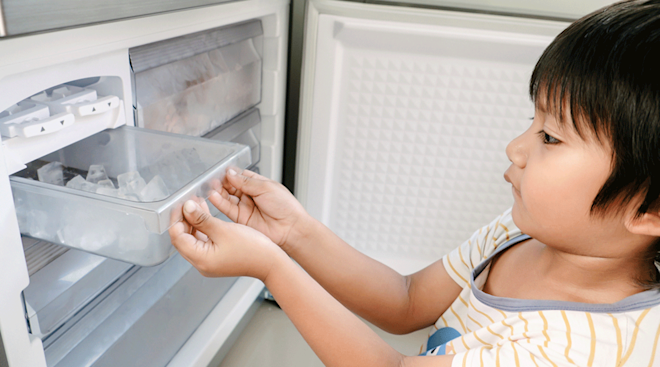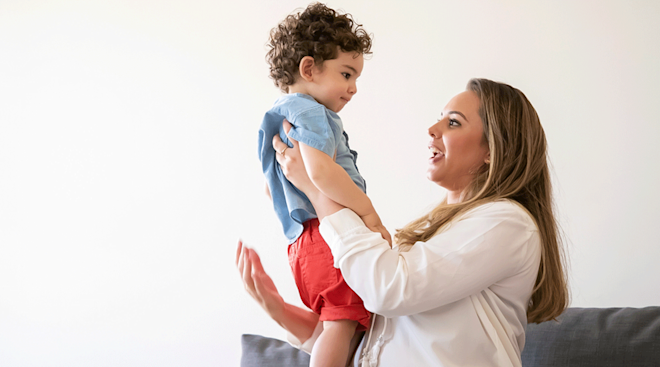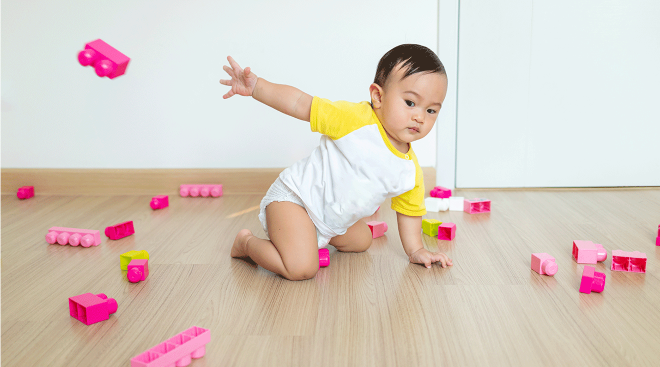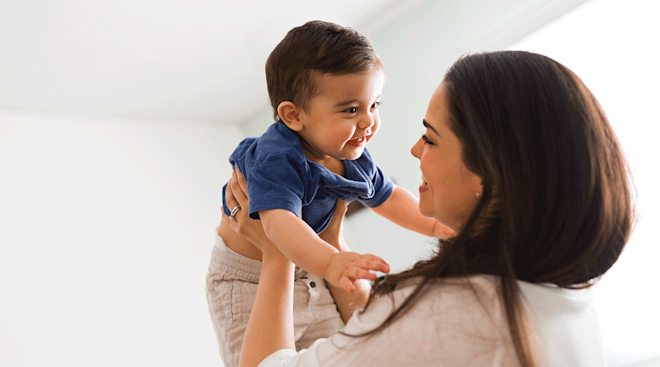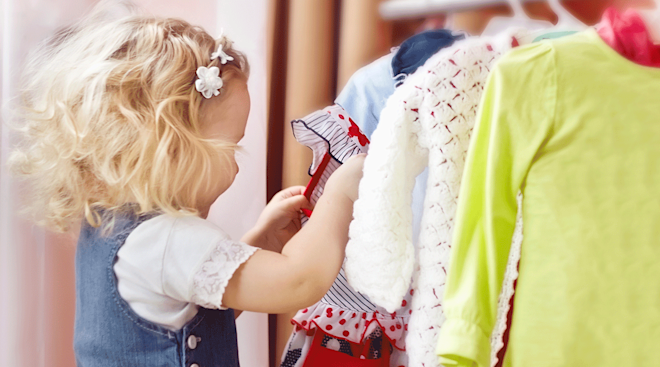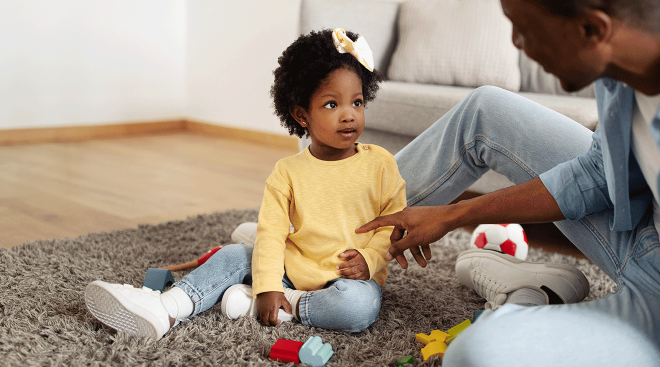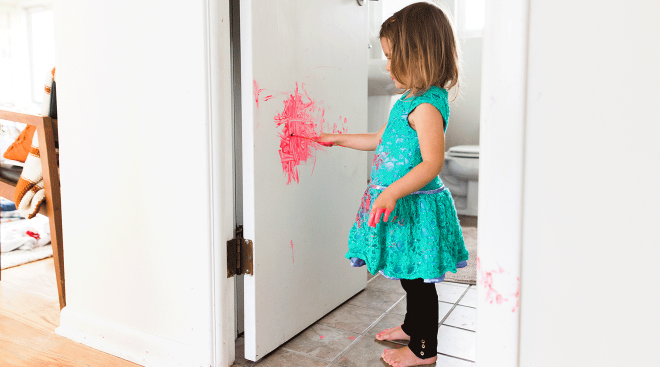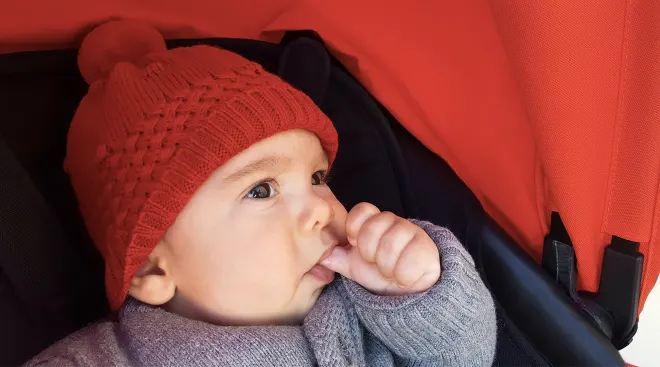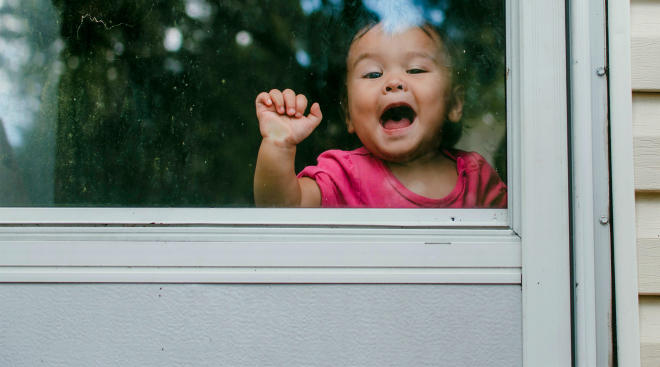8 Reasons Toddlers Freak Out (and What to Do About Them)
The braid in her hair comes unraveled and it sends her into a tailspin. He hears a loud noise and screams for an hour. “Toddlers aren’t miniature grown-ups,” says Heather Wittenberg, child psychologist and author of Let’s Get This Potty Started! The Babyshrink’s Guide to Potty Training Your Toddler. “They really are a different breed. They’re built to freak out. Plus, they change so rapidly, it can be hard for you to keep up.” So while some flip-outs are par for the course, you might be able to head off some others if you understand the reasons behind them.
They get famished — fast.
Your body may be pretty predictable — three square meals and a snack or two and you’re satisfied all day long, but toddlers can process food very unpredictably, depending on their activity levels and whether or not they’re going through a growth spurt, says Wittenberg. Plus, you can’t just say, “Oh, she’ll eat when she’s hungry” because toddlers usually aren’t into the idea of stopping play, putting down their toys and sitting still in a high chair. And what does hunger equal? Crankiness, of course.
What to do: Provide snacks with staying power. Regular balanced snacks with protein can help prevent hunger-related meltdowns. “I see too many parents falling into the trap of, ‘Oh he’ll only eat raisin toast,’” Wittenberg says. “Remember that you’re the parent. Say ‘You can have raisin toast as soon as you finish your tofu or eggs or broccoli.’ There may be a few days of struggle, but a balanced diet is important and you need to take back control if you’ve lost it.”
They need more sleep than you may realize.
Between nighttime and naps, toddlers need between 12 and 14 hours of sleep a day, and most get far less than that. “A toddler’s sleep needs fluctuate with their development and activity level, and things also change when they’re giving up a nap,” Wittenberg explains. “If your child routinely falls asleep in the car, especially at non-nap times, it’s a sign he’s not getting enough sleep.”
What to do: Stick to a regular nap schedule. Sure, it’s okay to interrupt the schedule when something important is happening, but toting a tired toddler on endless errands is a recipe for chaos.
They’ve got super senses.
Since a toddler’s neurological system is still developing, they can be hypersensitive to touch and sound, says Wittenberg. “Things that seem perfectly benign to us can feel excruciating to some children,” she says.
What to do: If you know your child is super sensitive, pay attention to the situations that cause a big reaction and try to avoid them as much as you can. The good news is that most (but not all) kids grow out of extreme sensitivities.
They’re immature.
Your toddler hasn’t fully developed the ability to reason. So explaining that she’ll get frostbite if she wears her mermaid costume in the snow might seem rational to you, but it won’t even register on her radar.
What to do: Pick your battles. “If it’s not a health or safety risk, allowing your child the occasional irrational indulgence helps her feel like she’s in control,” Wittenberg says. On the other hand, if what she wants is absolutely out of the question, you’ve got to lay down the law. “If you want to go outside, you have to put on your shoes and jacket,” you might tell her. “If you want to lie on the floor and freak out, that’s okay, too, but I’ll be in the other room.” Eventually, she’ll learn that she really should listen to you to get what she wants.
They depend on routine.
Toddlers are very busy figuring out how the world works and trying to make sense of it all; it’s no wonder they thrive on order and routine. So if you always go for donuts after church but have to skip it one Sunday, be prepared for a hissy-fit. “Behavior that’s seen as a psychological disorder in adulthood is perfectly normal in toddlerhood,” Wittenberg explains.
What to do: Give your child as much advance warning of schedule disruptions as possible. And be prepared to repeat, “You’re right. Usually we do it that way, but today we’re going to do it this way,” at least two or three dozen times.
They don’t have the words to express themselves.
Your toddler might have a lot of words in his vocabulary, but they’re still not enough to get his point across every time. And that’s overwhelmingly frustrating — for both of you.
What to do: If your kid can’t find the words, Wittenberg suggests asking him if he can express himself in another way. Maybe there’s something he can draw or somewhere he can take you to help get his message across. When everything else fails, tell your toddler he’s going to have to put the idea away and go do something else, and that you both can try again later.
They have no perspective.
Sorry, mama. Your toddler may seem sweet, but the odds that she’s got a full capacity for empathy are pretty low. This is a skill that builds throughout toddlerhood and beyond, so for now, it’s normal and natural for her to believe the world revolves around her. When you say it’s time to leave the park but she refuses, she’s not being defiant — she just wants what she wants.
What to do: Sure, you can offer a reward (“I have your favorite fruit snacks in my purse and we can share them when we get in the car”), but avoid an outright bribe (“I’ll get you a milk shake at the drive-thru if you stop screaming”), which will just make her want to act up again in the future.
They need to have some control.
You’re constantly telling your child where to go, what to do and when he needs to do it. So he may be desperate to have even an ounce of control over his own actions. (Can you really blame him?) For example, you tell him, “I think you need to go to the potty,” and he’s bound to say, “No, I don’t and you can’t make me!” (either with his words or some pretty extreme actions).
What to do: Remind, but in a way that says he’s still the boss of him. Try, “I’ll bet you’ll feel much better when you decide to go to the potty, but it’s your body and you’re in charge of it.” This gives him the space to make the decision himself, which is probably all he really wants.
Please note: The Bump and the materials and information it contains are not intended to, and do not constitute, medical or other health advice or diagnosis and should not be used as such. You should always consult with a qualified physician or health professional about your specific circumstances.
Plus, more from The Bump:
Navigate forward to interact with the calendar and select a date. Press the question mark key to get the keyboard shortcuts for changing dates.


































